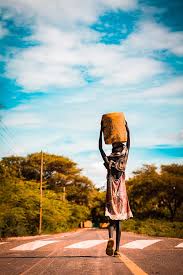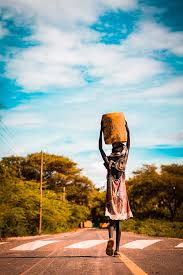
Dailycsr.com – 27 May 2019 – The “ACEC/MA” or the “American Council of Engineering Companies of Massachusetts” presented the “2019 Engineering Excellence Gold Award” to Tetra Tech for its “achievements on the U.S. Agency for International Development (USAID) Liberia Municipal Water Project (LMWP) I & II”.
The said award provides recognition to various engineering projects for their “innovation, complexity, fulfillment of client needs, socio-economic considerations, and future value to the profession”. And Tetra Tech has been involved in designing, overseeing constructions and “institutional reform” of LMWP besides the engineering it also built the “the capacity of the water utility and local engineers”.
During the LMWP project, the Tetra Tech’s team fixed water treatment plants that were in dilapidated conditions. Moreover, it also used “renewable energy, slow sand filters, water treatment, distribution, and storage” facilities to expand on the “water utility infrastructure” besides monitoring the water utility of Liberia.
Thanks to the said project as many as thirty three thousand people have access to clean water, while Tetra Tech built strategic “distribution kiosks” within half a kilometre of almost every household in “each of three cities” that fell under the project’s perimeter. This way, the risks of travelling safety has been successfully eliminated for earlier people would walk “up to 2,000 meters into remote areas” to get water.
Solar technology intervened to cut down on diesel consumption, while slow sand filters replaced “costly chemicals” which together delivered “an affordable solution” which can be “maintained at the local level”. Tetra Tech paired “context-appropriate solutions with capacity building” and helped these communities to become more “self-reliance”. Furthermore, the company also trained the locals about the operation and the maintenance of the water systems.
In fact, Tetra Tech also went ahead to ensure that the new systems are managed effectively without any disturbance, as a result it is carrying out “operation and maintenance training” besides providing “utility management support to the local private operator”.
Through the “context-appropriate approach” at LMWP, Tetra Tech set an example to replicate the local water utility in other parts of the country as a means to strengthen the water utility infrastructure. Furthermore, it is reported that:
“LMWP also considered socioeconomic factors throughout project implementation by safeguarding water revenue within the sector—accounting for education levels and developing institutional capacity—which stimulated the economy, boosted public health, and improved sustainability”.
Tetra Tech struck a private-public partnership and helped to mitigate an “endemic corruption within the water sector” which gave way to “improved transparency” within the sector and safeguarded the “USAID’s investment”. Community representatives were chosen to oversee daily functions of the system so as to improve accountability besides establishing local ownership.
References:
www.3blmedia.com
The said award provides recognition to various engineering projects for their “innovation, complexity, fulfillment of client needs, socio-economic considerations, and future value to the profession”. And Tetra Tech has been involved in designing, overseeing constructions and “institutional reform” of LMWP besides the engineering it also built the “the capacity of the water utility and local engineers”.
During the LMWP project, the Tetra Tech’s team fixed water treatment plants that were in dilapidated conditions. Moreover, it also used “renewable energy, slow sand filters, water treatment, distribution, and storage” facilities to expand on the “water utility infrastructure” besides monitoring the water utility of Liberia.
Thanks to the said project as many as thirty three thousand people have access to clean water, while Tetra Tech built strategic “distribution kiosks” within half a kilometre of almost every household in “each of three cities” that fell under the project’s perimeter. This way, the risks of travelling safety has been successfully eliminated for earlier people would walk “up to 2,000 meters into remote areas” to get water.
Solar technology intervened to cut down on diesel consumption, while slow sand filters replaced “costly chemicals” which together delivered “an affordable solution” which can be “maintained at the local level”. Tetra Tech paired “context-appropriate solutions with capacity building” and helped these communities to become more “self-reliance”. Furthermore, the company also trained the locals about the operation and the maintenance of the water systems.
In fact, Tetra Tech also went ahead to ensure that the new systems are managed effectively without any disturbance, as a result it is carrying out “operation and maintenance training” besides providing “utility management support to the local private operator”.
Through the “context-appropriate approach” at LMWP, Tetra Tech set an example to replicate the local water utility in other parts of the country as a means to strengthen the water utility infrastructure. Furthermore, it is reported that:
“LMWP also considered socioeconomic factors throughout project implementation by safeguarding water revenue within the sector—accounting for education levels and developing institutional capacity—which stimulated the economy, boosted public health, and improved sustainability”.
Tetra Tech struck a private-public partnership and helped to mitigate an “endemic corruption within the water sector” which gave way to “improved transparency” within the sector and safeguarded the “USAID’s investment”. Community representatives were chosen to oversee daily functions of the system so as to improve accountability besides establishing local ownership.
References:
www.3blmedia.com


 Tetra Tech Bags ‘2019 Engineering Excellence Gold Award’
Tetra Tech Bags ‘2019 Engineering Excellence Gold Award’




 Companies
Companies